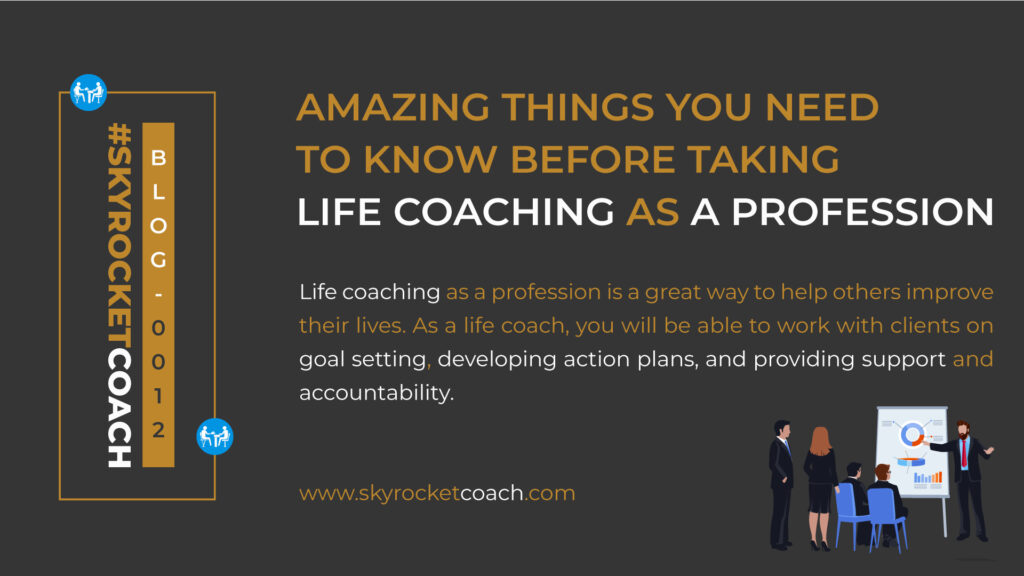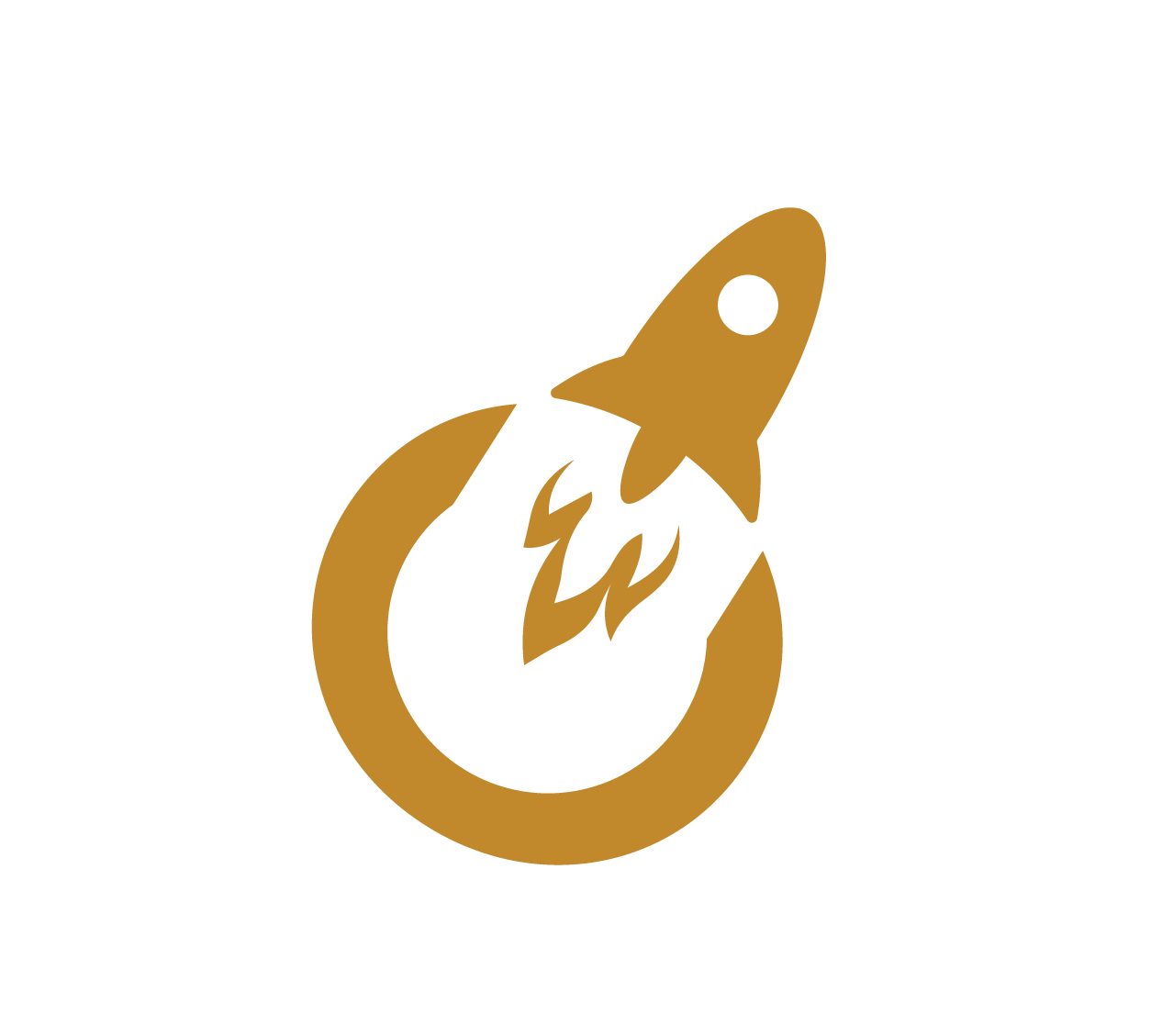
Life coaching as a profession is a great way to help others improve their lives. As a life coach, you will be able to work with clients on goal setting, developing action plans, and providing support and accountability. This career can be extremely rewarding, as you will be helping people to make positive changes in their lives. If you are interested in helping others achieve their goals, then life coaching as a profession could be the perfect career for you.
Table of Contents
Three important qualities to becoming a life coach

If you are thinking about becoming a life coach, there are a few things that you should keep in mind.
- First, you will need to be very patient and supportive. Your clients will likely be going through a lot of changes, and they may need some time to adjust.
- Second, you should be a good listener. It is important that you understand what your clients are saying and that you are able to offer helpful advice.
- Finally, you should be passionate about helping others. If you are not genuinely interested in helping others, then this career may not be for you.
The History Of Life Coaching As A Profession

Many people think of life coaching as a profession relatively new. The truth is, that while life coaching has only gained popularity in recent years, the concept of life coaching is actually quite old.
The ancient Greek philosopher Aristotle is credited with being one of the first life coaches. He was hired by Alexander the Great to teach him how to be an effective leader. In more recent history, life coaching can be traced back to the early 20th century with professionals such as Dale Carnegie and Napoleon Hill.
While life coaching has been around for centuries, it is only in recent years that it has become a popular profession. This is likely due to the fact that our fast-paced, modern lives have left many people feeling lost and uncertain of their life paths.
Thomas Leonard was the driving force behind creating and developing the entire life coaching industry. Thomas Leonard invented the personal coaching process in about 1991-1992. Leonard spent about 3 years trying to unravel the mystery of himself using every process and every resource he could find asking for help from anyone who would listen. And he failed miserably. Out of desperation, he realized that if he couldn’t find anyone to help him, maybe he could be the one to help others. And so, the life coaching industry was born.
For the next few years, Leonard continued to develop his craft and perfect his process. He wrote books, gave talks, and trained other coaches. In doing so, he helped to create an industry that has now grown to be worth billions of dollars.
While there are many different types of life coaching out there today, Leonard’s original vision was to help people live their best lives. This is still the goal of many coaches today. If you’re looking for someone to help you achieve your dreams and goals, a life coach may be the perfect person for you.
How actually is life coaching as a profession?

A life coach helps clients achieve their goals in life. Life coaching has been around for centuries in one form or another. It wasn’t until the late 20th century that life coaching began to gain popularity as a formal profession.
The early days of life coaching were often focused on helping people make significant changes in their lives, such as changing careers or starting a business. Today, life coaches help people with all sorts of goals, both big and small. Whether you want to make a major life change or just get through a tough week, a life coach can help you achieve your goals.
Difference between a life coach and a therapist

A life coach is not a therapist. A life coach does not treat mental illness or disorders. Instead, a life coach helps individuals who are struggling with life transitions or who want to make changes in their lives but don’t know where to start.
A life coach can help you figure out what you want in life and develop a plan to achieve your goals. A life coach is like a cheerleader, motivator, and sounding board all rolled into one.
If you are considering a career in life coaching, here are a few things to keep in mind:
– Life coaching is not counseling or therapy.
– Life coaching is about helping people make positive changes in their lives.
– Life coaching is a relatively new profession, so there are no set rules or regulations.
– You don’t need any formal qualifications to be a life coach, although many life coaches have training in counseling, psychology, or social work.
– Life coaching is about helping people
If you have the passion and drive to help people change their lives for the better, life coaching could be the perfect career for you!
Four things you should know about the life coaching profession
If you’re thinking about taking the life coaching profession, there are a few things you should know.
- First, life coaches come from all walks of life. There is no one-size-fits-all life coach, so you can be sure to find a life coach that fits your unique style and personality.
- Second, life coaching is not therapy. While life coaches may help you work through personal issues, they are not trained therapists and should not be used as a substitute for professional counseling or therapy.
- Third, becoming a life coach requires both training and certification. There are many different life coaching certifications available, so it’s important to do your research to find the right one for you.
- Finally, life coaching is a rewarding and fulfilling profession. If you’re looking for a way to help others achieve their goals and reach their full potential, life coaching could be the perfect fit for you.
Types of life coaching business
There are many different types of life coaching, each with its own focus and approach. Some life coaches may specialize in career coaching, while others may focus on relationship coaching or life transitions. There are also coaches who specialize in specific areas such as health and wellness coaching, Executive life coaching, business coaching finances, or spirituality.
No matter what type of life coaching you pursue, the goal is to help you identify your goals and create a plan for Executive life.
Three powerful steps for to life coaching profession

Life coaching is a process that helps people identify and achieve personal and professional goals. Life coaches work with clients to help them clarify their goals, overcome obstacles, and create action plans to achieve success.
If you’re thinking about becoming a life coach, there are a few steps you must take to make sure you’re successful in this profession.
- Firstly, you’ll need to get certified as a life coach. This will give you the tools and knowledge you need to help your clients achieve their goals. There are many different life coaching certification programs available, so choose one that best suits your needs.
- Once you’re certified, it’s important to market yourself and build a client base. There are many ways to do this, such as creating a coaching website, writing blog posts, or hosting a webinar.
- It’s also essential to continuously learn and grow as a life coach. This means keeping up with the latest research, attending workshops and seminars, and reading books on the subject. By continually learning, you’ll be able to offer your clients the best possible advice and guidance.
If you’re ready to take the next step in your career, life coaching can be a rewarding and fulfilling profession. Follow these steps to life coach as a profession and help others achieve their goals.
Final words
Life coaching is a great way to help people achieve their goals, but it’s important to be certified and continually learn and grow as a life coach. market yourself to build a client base. Life coaching can be a rewarding and fulfilling profession.
It’s also essential to continuously learn and grow as a life coach. This means keeping up with the latest research, attending workshops and seminars, and reading books on the subject. By continually learning, you’ll be able to offer your clients the best possible advice and guidance.
If you’re ready to take the next step in your career, life coaching can be a rewarding and fulfilling profession.
frequently asked question
1. Is it worthwhile to work as a life coach?
⇒ While engaging in life or executive coaching can be a great solution for resolving personal or professional challenges or achieving objectives, it is not a magic bullet. When you want someone to listen to your situation and examine your feelings, working with a coach is probably not worth the money. You might need to see a therapist instead.
2. How do life coaches get clients?
⇒ “Tell some pals what you’re up to and ask if they’d want to do a session to obtain your initial coaching clients.” Finally, either sign them up or ask if they know someone who might benefit from your coaching. “Friends are always the most convenient way to get started.”
3. What is the best way for me to market myself as a life coach?
⇒ The best way for me to market myself as a life coach
- Make a program bundle that is attractive.
- Participate in workshops and other activities.
- Make yourself stand out from the crowd.
- Organize gatherings.
- Establish a significant presence on social media.
4. Why do so many life coaches fail?
⇒ The most common reason Life Coaches fail is a lack of commitment – or, at the very least, a lack of resolve to get them through the tough times. It’s difficult to be a great coach if you don’t put in the effort. It is exceedingly tough to generate clients when there is no commitment. Everything else is pointless without commitment.
5. How Do Life Coaches Make money?
⇒ Many life coaches make money through one-on-one sessions with clients. These can be done in person, over the phone, or via video chat. Coaches may also offer group coaching, workshops, or retreats. Some life coaches also earn income through online courses or products.




Recent Comments